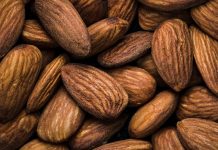
Understanding Heart Failure: A Quick Snapshot
Imagine your heart is like a diligent pump, working tirelessly to send vital blood (and thereby oxygen and nutrients) to every nook and cranny of your body.
Heart failure, despite its rather stark name, doesn’t mean the heart has stopped working, but rather it’s not pumping as well as it should be.
This means that the body’s cells might not get all the nourishment they need, and this can lead to various symptoms like fatigue and shortness of breath.
With over 26 million people worldwide affected by heart failure, focusing on lifestyle, notably our plates, can play a crucial role in managing this condition.
Eating for Your Heart: Foods That Befriend Your Pump
When it comes to nourishing our hearts, certain foods have stepped into the spotlight, showing potential in supporting heart health, particularly for those navigating through heart failure.
Fruits and Veggies: Nature’s Treats: Numerous studies, including ones published in journals like the American Journal of Clinical Nutrition, have touted the benefits of fruits and vegetables for heart health, due to their low calorie content and high vitamin, mineral, and antioxidant levels.
Whole Grains: Wholesome and Heartening: Whole grains like oats, brown rice, and whole wheat bread bring along fibers and nutrients that have been associated with improved heart health, as per findings from research in journals such as JAMA Internal Medicine.
Lean Proteins: Keeping it Light: Choosing lean proteins, like poultry, fish, beans, and lentils, provide the body with necessary protein without overburdening it with excessive saturated fats – a balance that’s crucial for a heart under stress, as indicated in research in the Journal of the American College of Cardiology.
Treading Carefully: Foods to Approach with Caution
Certain items on our menus might not be as heart-friendly, especially for those with heart failure, and moderating these can be pivotal.
Salt/Sodium: A Delicate Balance: High sodium intake can exacerbate the symptoms of heart failure by retaining fluid in the body. The American Heart Association and numerous studies consistently advise keeping sodium intake in check for heart failure patients.
High-Fat Foods: Choose Wisely: While some fats (like those from fish and olive oil) can be beneficial, trans fats and saturated fats, especially from fried and processed foods, are advised to be limited for heart health, as per guidelines from organizations like the American College of Cardiology.
Sugary Delights: A Hidden Foe: Surprising to some, sugary foods and beverages may play a role in worsening heart health, potentially leading to increased risk of heart failure, according to research published in journals such as Circulation.
Bringing It All Together: A Balanced Plate and Heart
Ensuring that the heart, our vital pump, is nurtured requires a holistic approach. Embracing heart-friendly foods while treading lightly with those that can stress the heart forms the base of nourishing ourselves mindfully.
But it’s vital to remember that every individual is unique, and dietary approaches might need to be tailored accordingly, considering the broad spectrum of needs and preferences.
Consulting with healthcare professionals and possibly working with a dietitian or nutritionist can pave a way towards a diet that not only embraces heart health but also aligns with one’s lifestyle and preferences.
In the journey through managing heart failure, every positive step in nourishing the body can ripple into enhanced quality of life and well-being.
Follow us on Twitter for more articles about this topic.
Copyright © 2023 Scientific Diet. All rights reserved.








